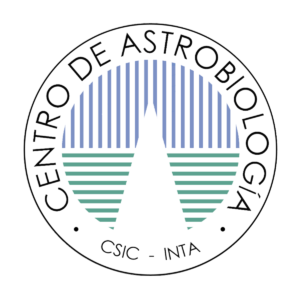Gaia Collaboration, F. van Leeuwen, A. Vallenari, C. Jordi, L. Lindegren, U. Bastian, T. Prusti, J.H.J. de Bruijne, A.G.A. Brown, C. Babusiaux, C.A.L. Bailer-Jones, M. Biermann, D.W. Evans, L. Eyer, F. Jansen, S.A. Klioner, U. Lammers, X. Luri, F. Mignard, C. Panem, D. Pourbaix, S. Randich, P. Sartoretti, H.I. Siddiqui, C. Soubiran, V. Valette, N.A. Walton, C. Aerts, F. Arenou, M. Cropper, R. Drimmel, E. Høg, D. Katz, M.G. Lattanzi, W. O’Mullane, E.K. Grebel, A.D. Holland, C. Huc, X. Passot, M. Perryman, L. Bramante, C. Cacciari, J. Castañeda, L. Chaoul, N. Cheek, F. De Angeli, C. Fabricius, R. Guerra, J. Hernández, A. Jean-Antoine-Piccolo, E. Masana, R. Messineo, N. Mowlavi, K. Nienartowicz, D. Ordóñez-Blanco, P. Panuzzo, J. Portell, P.J. Richards, M. Riello, G.M. Seabroke, P. Tanga, F. Thévenin, J. Torra, S.G. Els, G. Gracia-Abril, G. Comoretto, M. Garcia-Reinaldos, T. Lock, E. Mercier, M. Altmann, R. Andrae, T.L. Astraatmadja, I. Bellas-Velidis, K. Benson, J. Berthier, R. Blomme, G. Busso, B. Carry, A. Cellino, G. Clementini, S. Cowell, O. Creevey, J. Cuypers, M. Davidson, J. De Ridder, A. de Torres, L. Delchambre, A. Dell’Oro, C. Ducourant, Y. Frémat, M. García-Torres, E. Gosset, J.-L. Halbwachs, N.C. Hambly, D.L. Harrison, M. Hauser, D. Hestroffer, S.T. Hodgkin, H.E. Huckle, A. Hutton et al. (492 autes adicionales no acopiados). 2017. Gaia Data Release 1 Open cluster astrometry: performance, limitations, and future prospects. Astronomy and Astrophysics 601, DOI: 10.1051/0004-6361/201730552
The first Gaia Data Release contains the Tycho-Gaia Astrometric Solution (TGAS). This is a subset of about 2 million stars for which, besides the position and photometry, the proper motion and parallax are calculated using Hipparcos and Tycho-2 positions in 1991.25 as prior information.
Aims. We investigate the scientific potential and limitations of the TGAS component by means of the astrometric data for open clusters. Methods. Mean cluster parallax and proper motion values are derived taking into account the error correlations within the astrometric solutions for individual stars, an estimate of the internal velocity dispersion in the cluster, and, where relevant, the effects of the depth of the cluster along the line of sight. Internal consistency of the TGAS data is assessed.
Results. Values given for standard uncertainties are still inaccurate and may lead to unrealistic unit-weight standard deviations of least squares solutions for cluster parameters. Reconstructed mean cluster parallax and proper motion values are generally in very good agreement with earlier Hipparcos-based determination, although the Gaia mean parallax for the Pleiades is a significant exception. We have no current explanation for that discrepancy. Most clusters are observed to extend to nearly 15 pc from the cluster centre, and it will be up to future Gaia releases to establish whether those potential cluster-member stars are still dynamically bound to the clusters.
Conclusions. The Gaia DR1 provides the means to examine open clusters far beyond their more easily visible cores, and can provide membership assessments based on proper motions and parallaxes. A combined HR diagram shows the same features as observed before using the Hipparcos data, with clearly increased luminosities for older A and F dwarfs.






